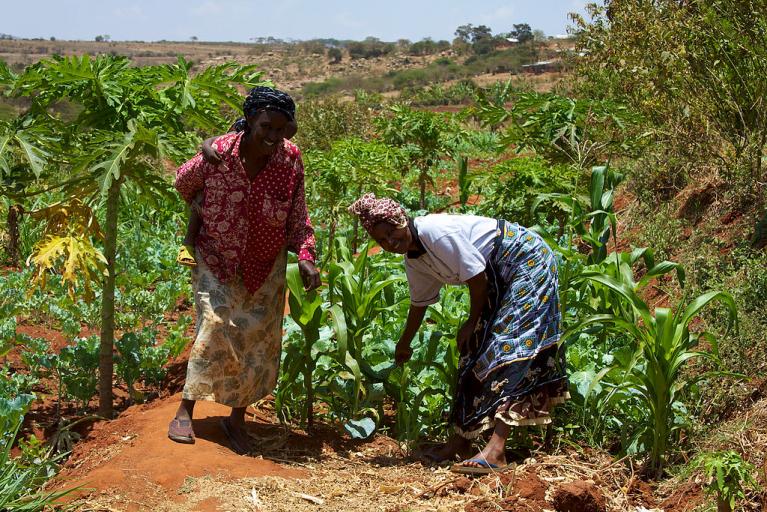Latest Resources

3 March 2025
On-going assaults on our food system and peoples’ health
Legal loopholes to allow continued use of highly hazardous pesticides, GM crops On the 27th of February, the ACB submitted substantive objections to the South African government’s attempt to backtrack on its commitments to phase out highly hazardous pesticides (HHPs), including glufosinate ammonium (GLA), by way of spurious and potentially unlawful “derogation” regulations. The rise […]

22 October 2024
Resistance against “bogus” drought tolerant (DT) maize in South Africa: a snapshot of two decades...
UPDATE: After nine years of arduous litigation by the ACB, a full bench of the Supreme Court of Appeal on 22 October 2024 set aside several layers of decision-making regarding the approval of the application by Monsanto, now Bayer, for commercial release of its drought-tolerant genetically modified maize, MON87460. 28 June 2023 UPDATE: In 2023, […]

25 July 2022
The battle over regulation of new breeding techniques in South Africa
– A blog by ACB Director Mariam Mayet Snapshot In October 2021, the South African (SA) government determined that the regulatory and risk assessment framework that exists for genetically modified organisms (GMOs) will also apply to new breeding techniques (NBTs), which make up a host of new genetic engineering technologies. This decision appears to follow […]

1 November 2018
Demystifying GM maize through collective action on World Food Day
In an effort to highlight the complex and concentrated South African agricultural and food system, with its unsustainable and deepening inequality, the African Centre for Biodiversity (ACB) and partner organisations initiated a “no GMO-maize campaign” earlier in 2018. This was followed up in August 2018, with a meeting of organisations that included Zingisa, Ntinga Ntaba […]

30 October 2018
Reflections on ITPGRFA, UPOV 1991 and South Africa
Recently the Department of Agriculture, Forestry and Fisheries (DAFF) held national consultations on whether South Africa should accede to two international agreements related to seed: The International Treaty on Plant Genetic Resources for Food and Agriculture (ITPGRFA, or the Treaty) and the International Convention on the Protection of New Varieties of Plants (UPOV) 1991. The […]

14 June 2018
Restrict, regulate and reduce corporate power in South Africa’s food system
I attended a dialogue on corporate ownership in South Africa in May, in Tshwane, hosted by Trade and Industrial Policy Strategies (TIPS). There was strong government representation at the dialogue, including from Treasury; Trade and Industry; Minerals and Energy; and Planning, Monitoring and Evaluation. Someone from the EU was also there. Corporate concentration is a […]

6 June 2018
Bayer opposes black economic empowerment in purchase of Monsanto
The Competition Tribunal announced the finalisation of the merger between Bayer and Monsanto in South Africa in May. Bayer had taken the original conditions imposed by the Competition Commission in 2017 to the Tribunal for reassessment. These included selling businesses to black economic empowerment (BEE) compliant companies. Bayer has claimed confidentiality on the conditions, making […]

31 July 2017
The Water Efficient Maize for Africa (WEMA) project: Real or false solution to climate change?
By Lim Li Ching, Senior Researcher, Third World Network Climate change is an urgent challenge facing farmers in Africa. As our world warms, many farmers are already experiencing devastating consequences, including storms, drought, floods, heat waves and extreme weather events. The implications for food security are severe, with the Intergovernmental Panel on Climate Change (IPCC) […]

3 July 2017
Resistance is fertile! Farmers rise up against South Africa’s corporate seed laws
Calls to decolonise our seed system at Gauteng public hearings on the Plant Improvement and Plant Breeders’ Rights Bills. Are there alternative systems that put farmers at the centre, do not reduce genetic and agricultural diversity, and support agroecology, seed and food sovereignty and resilience? South African smallholder farmers, consumers, academics and civil society at […]

28 January 2006
The Long, winding road to a Biosafety Protocol – a South African view
At the negotiations for the Biosafety Protocol in Cartagena, the South Africa government surprised critics by displaying a maturity and understanding of the issues and concerns facing developing countries on the question of genetically engineered organisms. This in spite of attempts by the ‘Miami group’, a negotiating group representing the largest producer nations of biotechnology, […]
